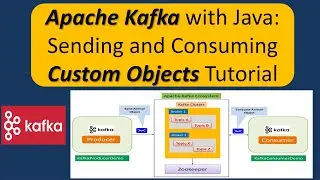Static Synchronization Blocks in Java: Preventing Concurrent Access Issues | Java Synchronization
In this educational video, we delve into the concept of static synchronization blocks in Java, an important aspect of thread synchronization and concurrency control. Static synchronization blocks provide a mechanism for coordinating access to shared resources among multiple threads, ensuring thread safety and preventing race conditions in Java applications.
Throughout the video, we provide clear explanations and practical examples to illustrate the usage of static synchronization blocks. We discuss how static synchronization blocks can be used to achieve mutual exclusion and synchronization in Java programs, particularly in scenarios involving static methods or shared static variables.
Viewers will learn about the syntax and semantics of static synchronization blocks, as well as best practices for using them effectively. We highlight the advantages of static synchronization blocks over other synchronization mechanisms and discuss common pitfalls to avoid.
Whether you're new to Java multithreading or looking to deepen your understanding of synchronization techniques, this video offers valuable insights and practical guidance that you can apply in your Java projects.
Don't forget to subscribe to our channel for more informative videos on Java programming, concurrency, and multithreading. Stay tuned for future content that will further expand your knowledge and empower you to become a proficient Java developer.
What is static synchronization block? | Java Synchronization | Java Threads
Java Source Code here:
http://ramj2ee.blogspot.com/2017/02/j...
Click the below link to download the code:
https://drive.google.com/file/d/1RtO5...
Github Link:
https://github.com/ramram43210/Java/t...
Bitbucket Link:
https://bitbucket.org/ramram43210/jav...
#Java,#JavaThreads,#JavaTutorial,#JavaBasics,#JavaThread,#ThreadsinJava,#ThreadinJava,#JavaSynchronization,#Synchronizationinjava,#Synchronization































